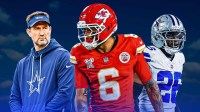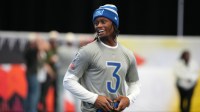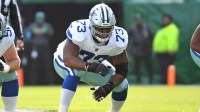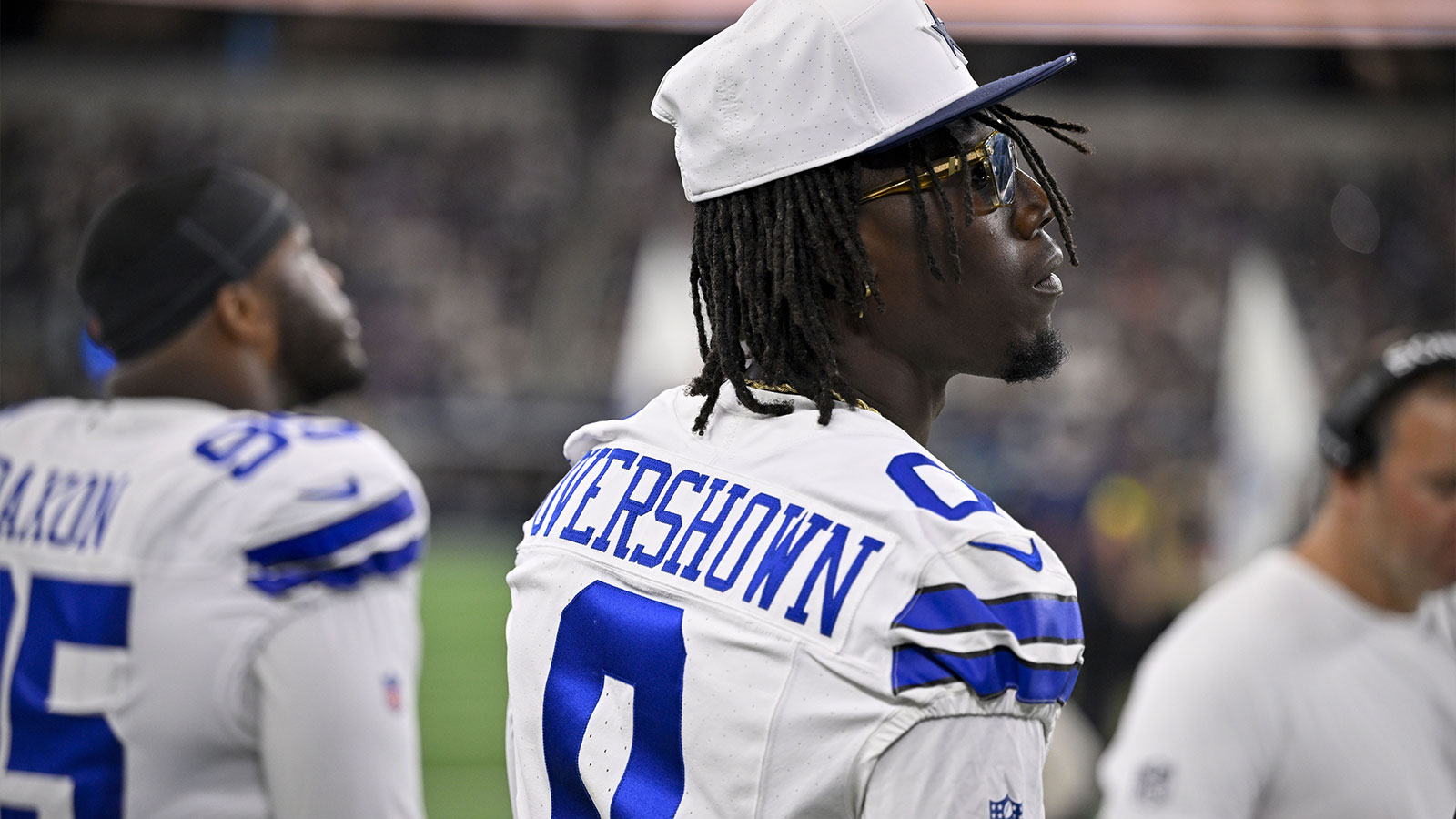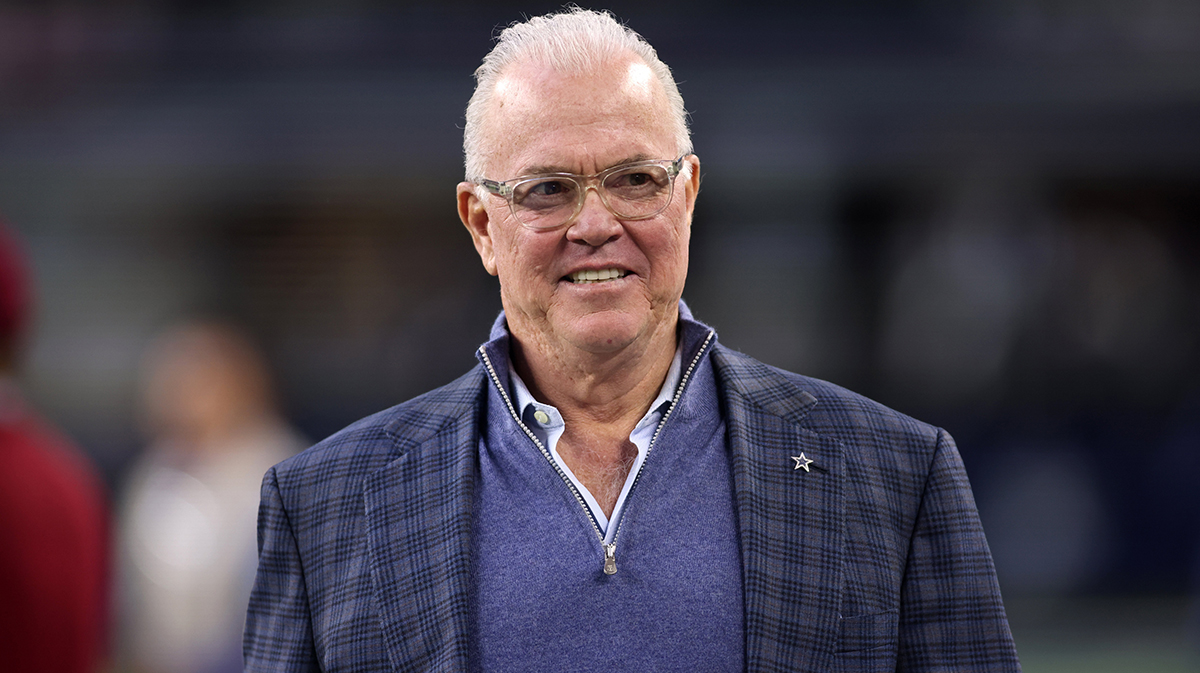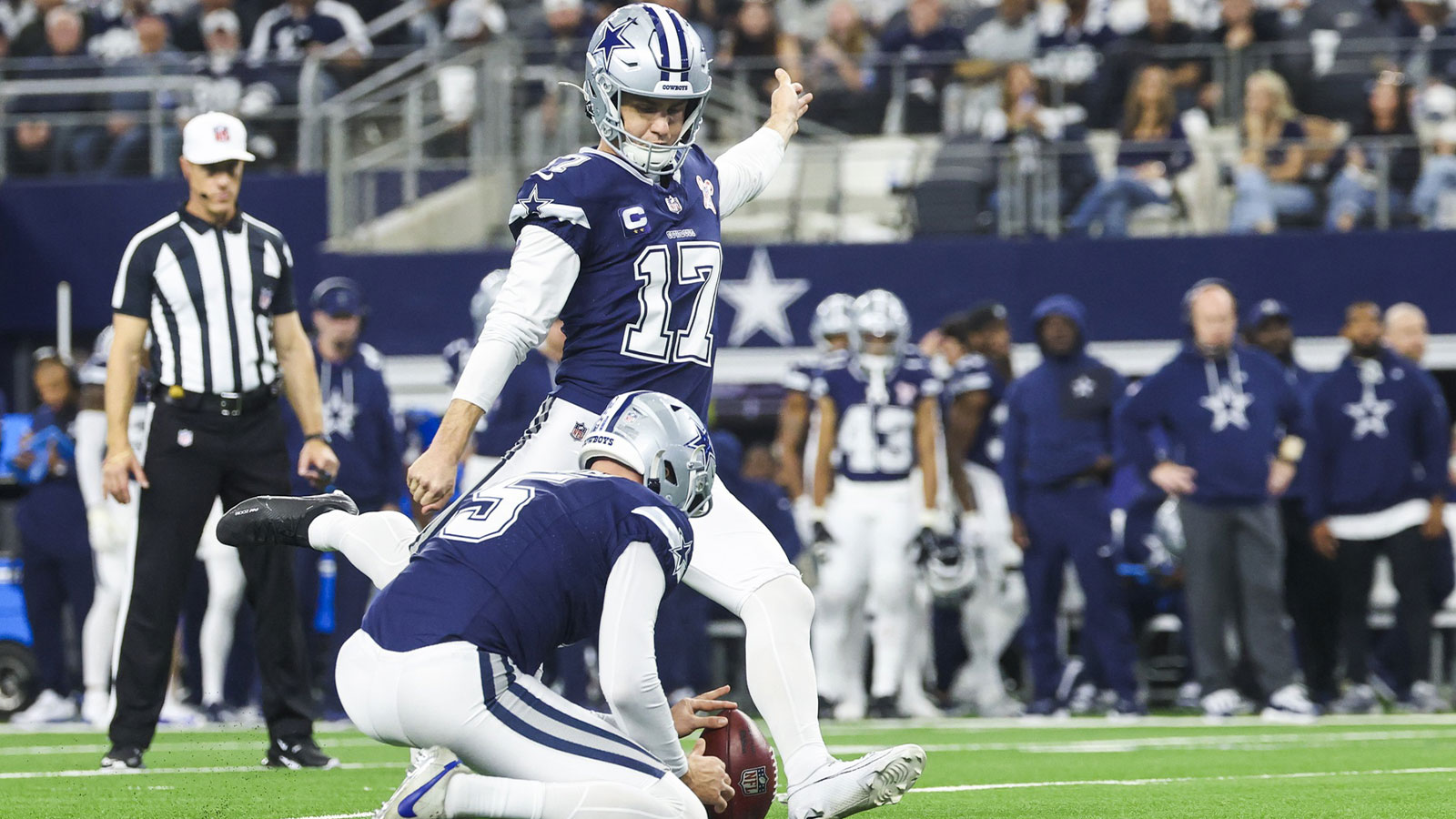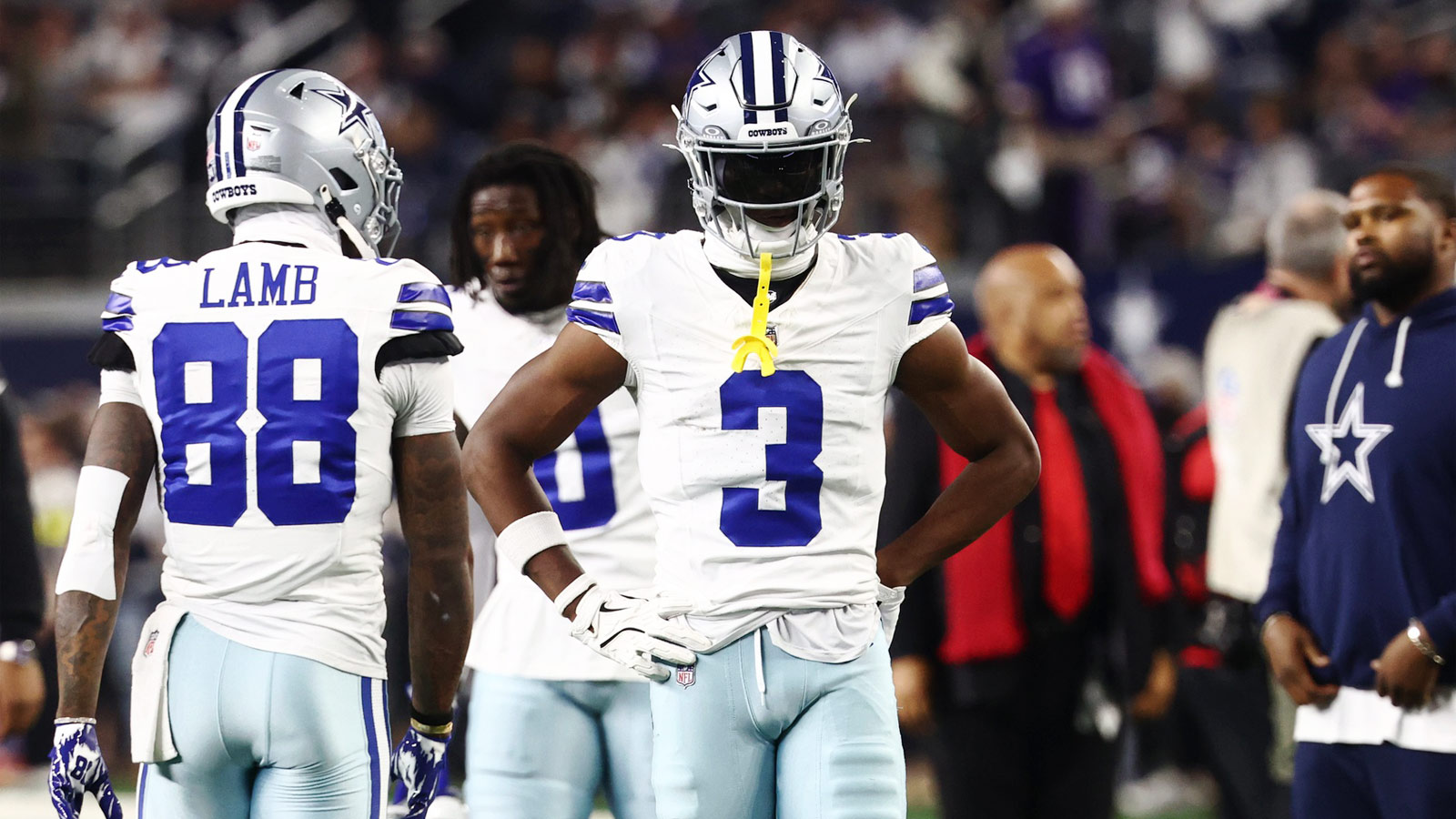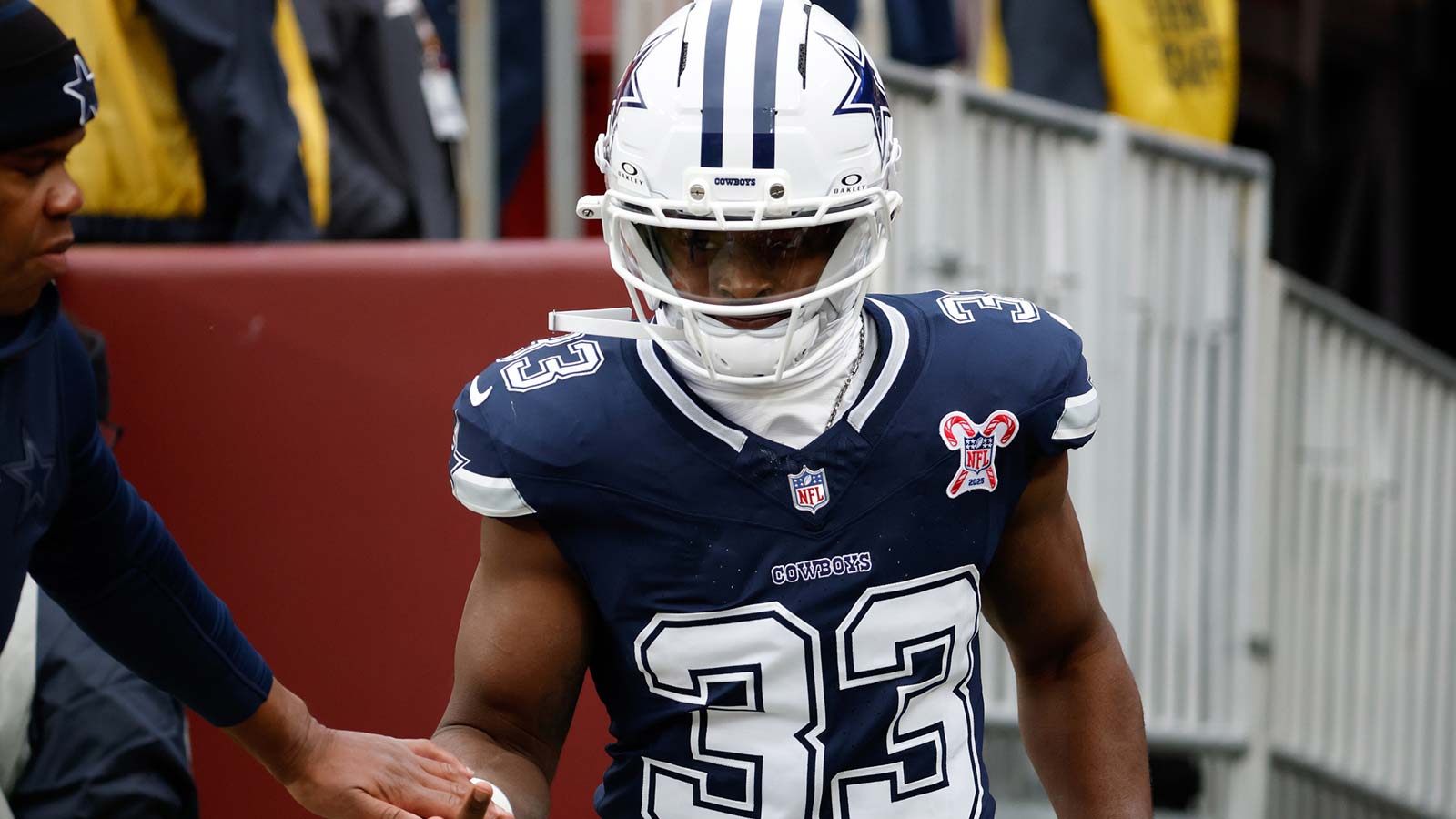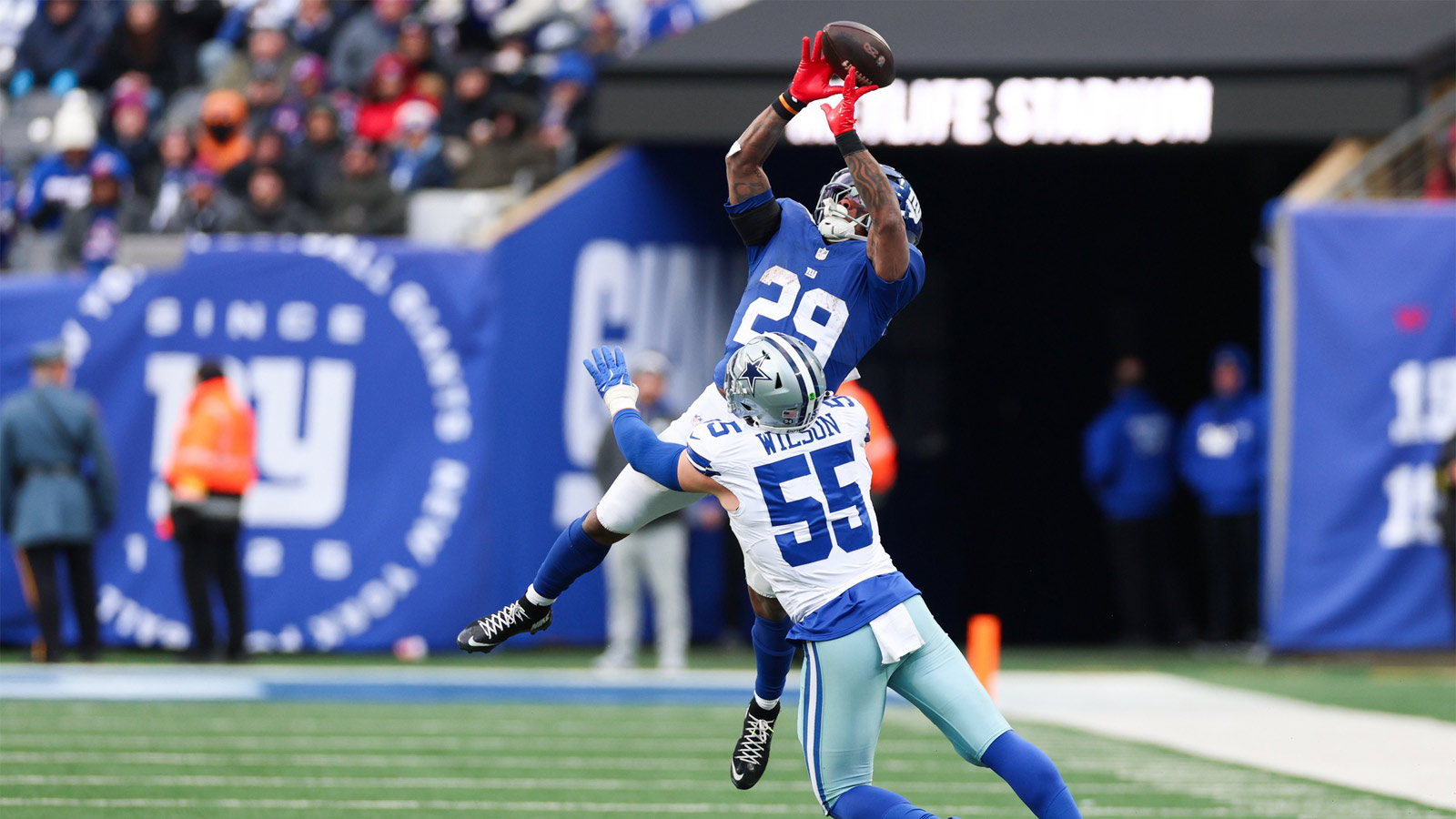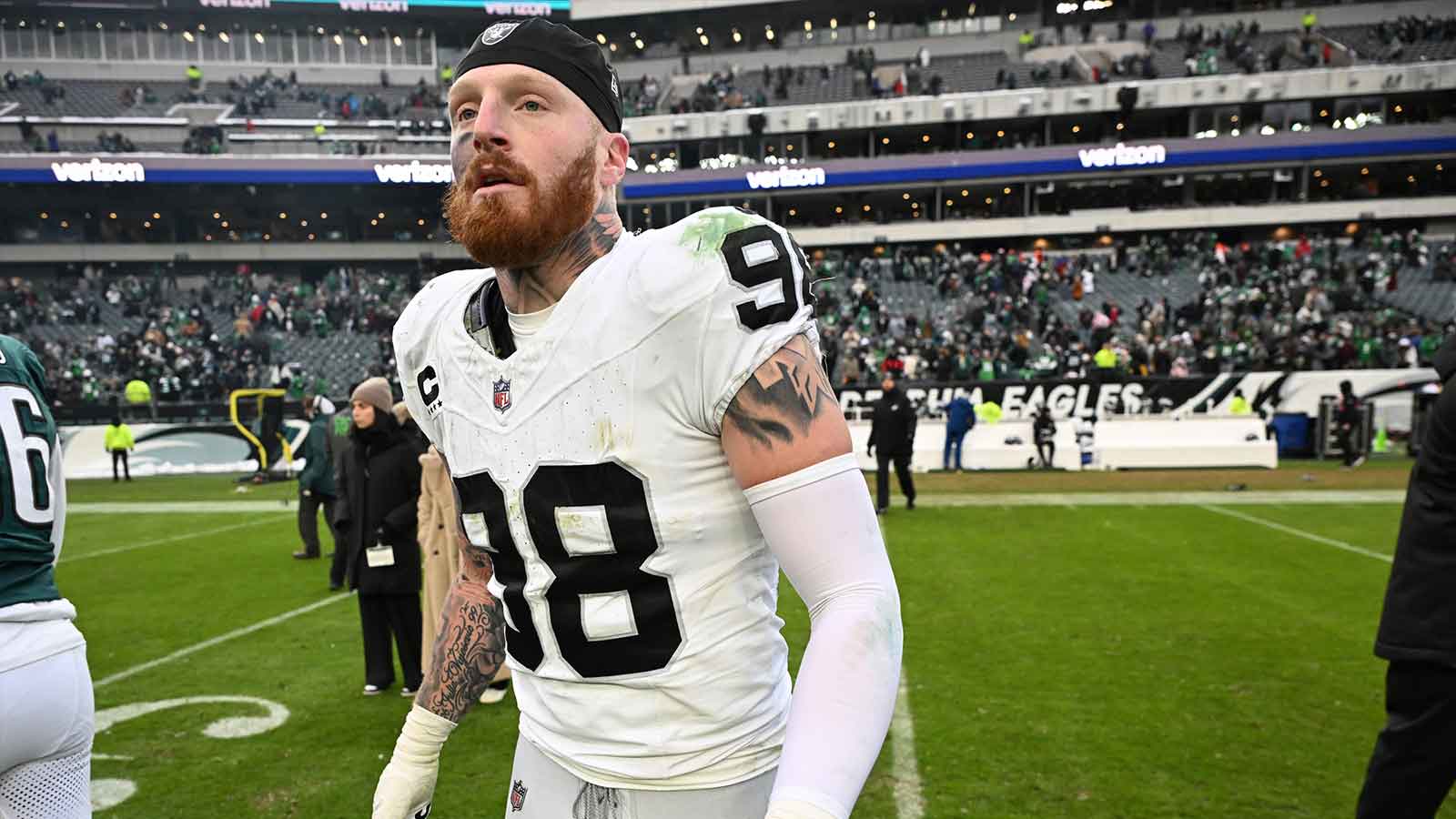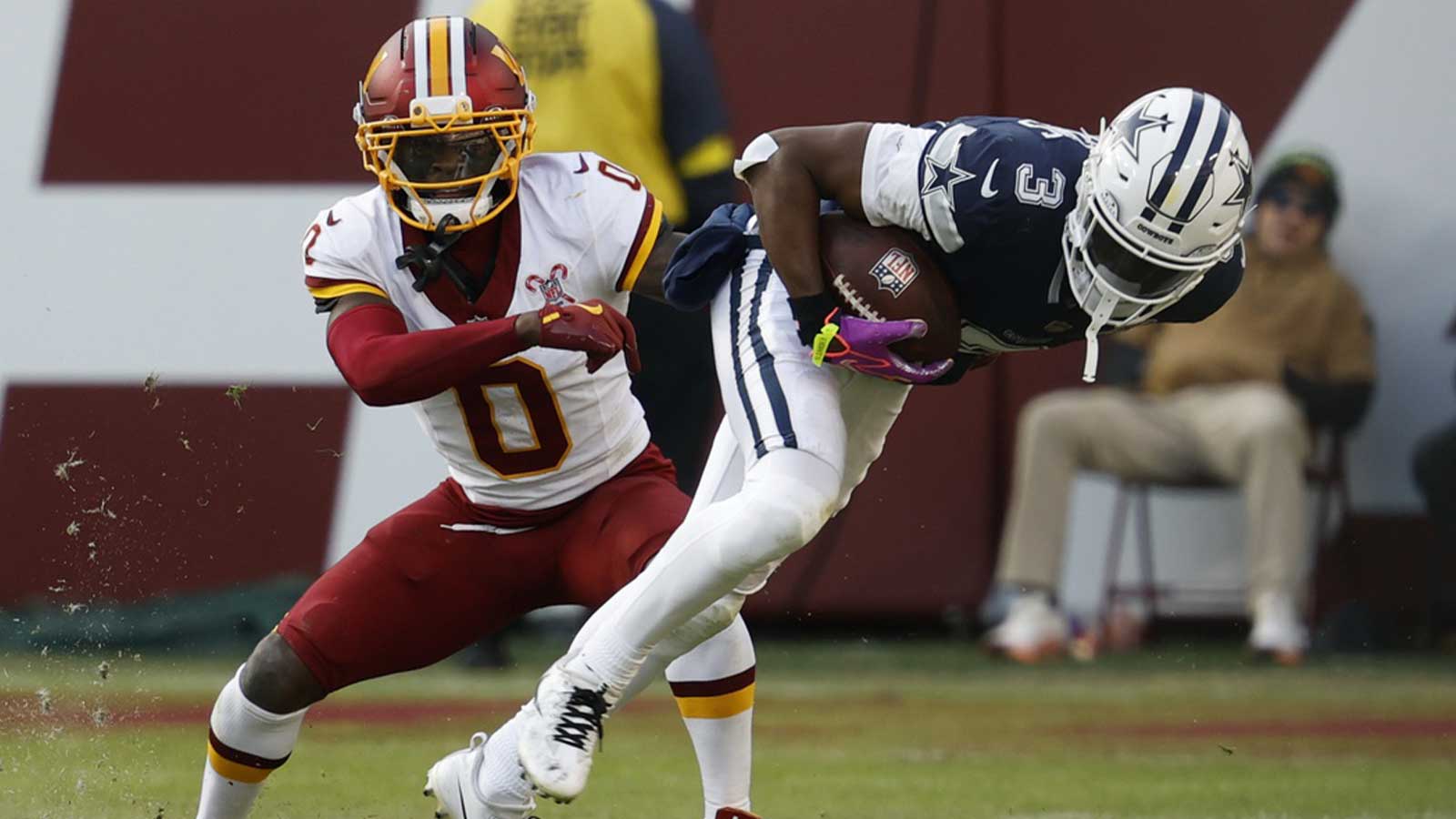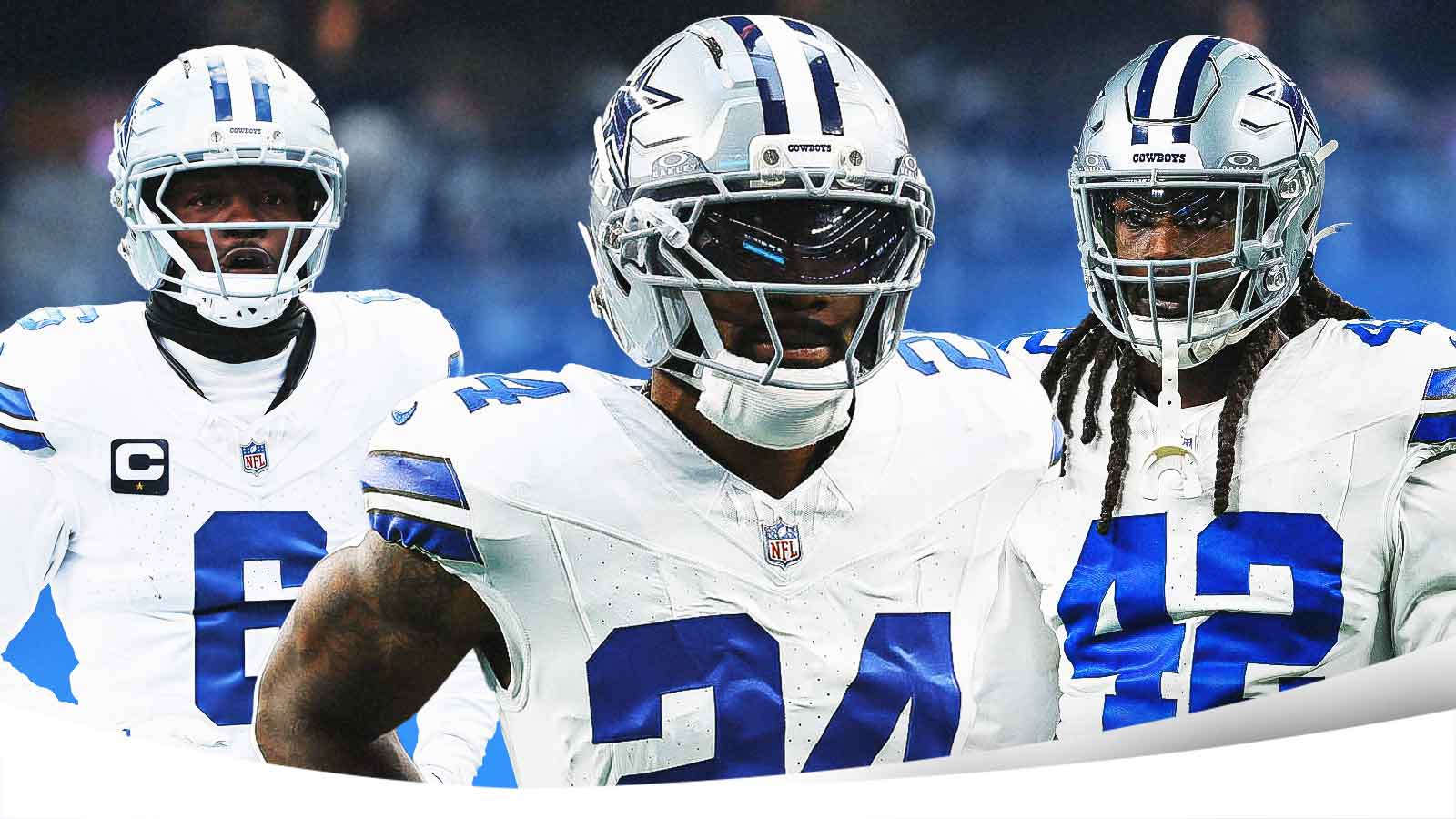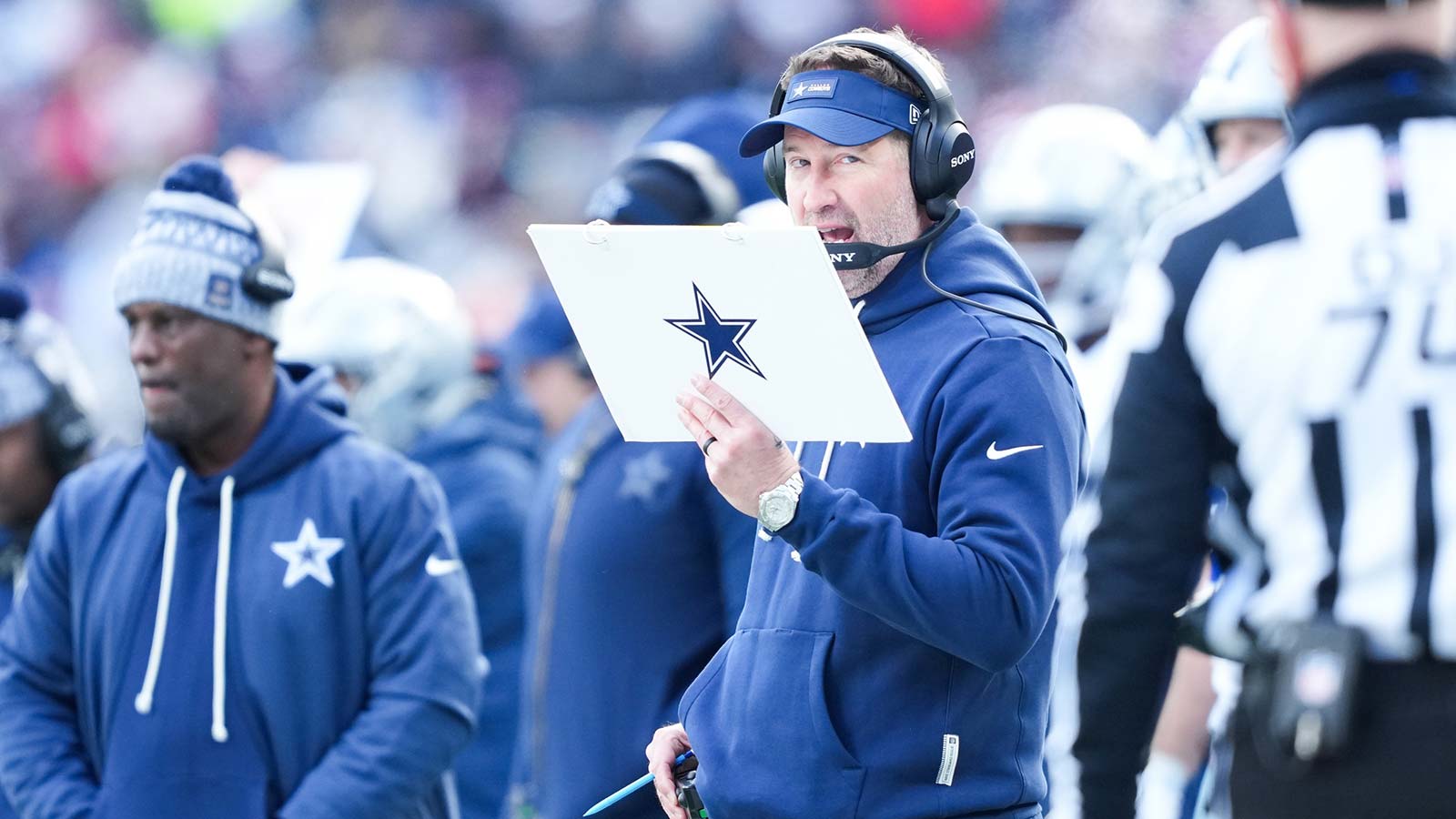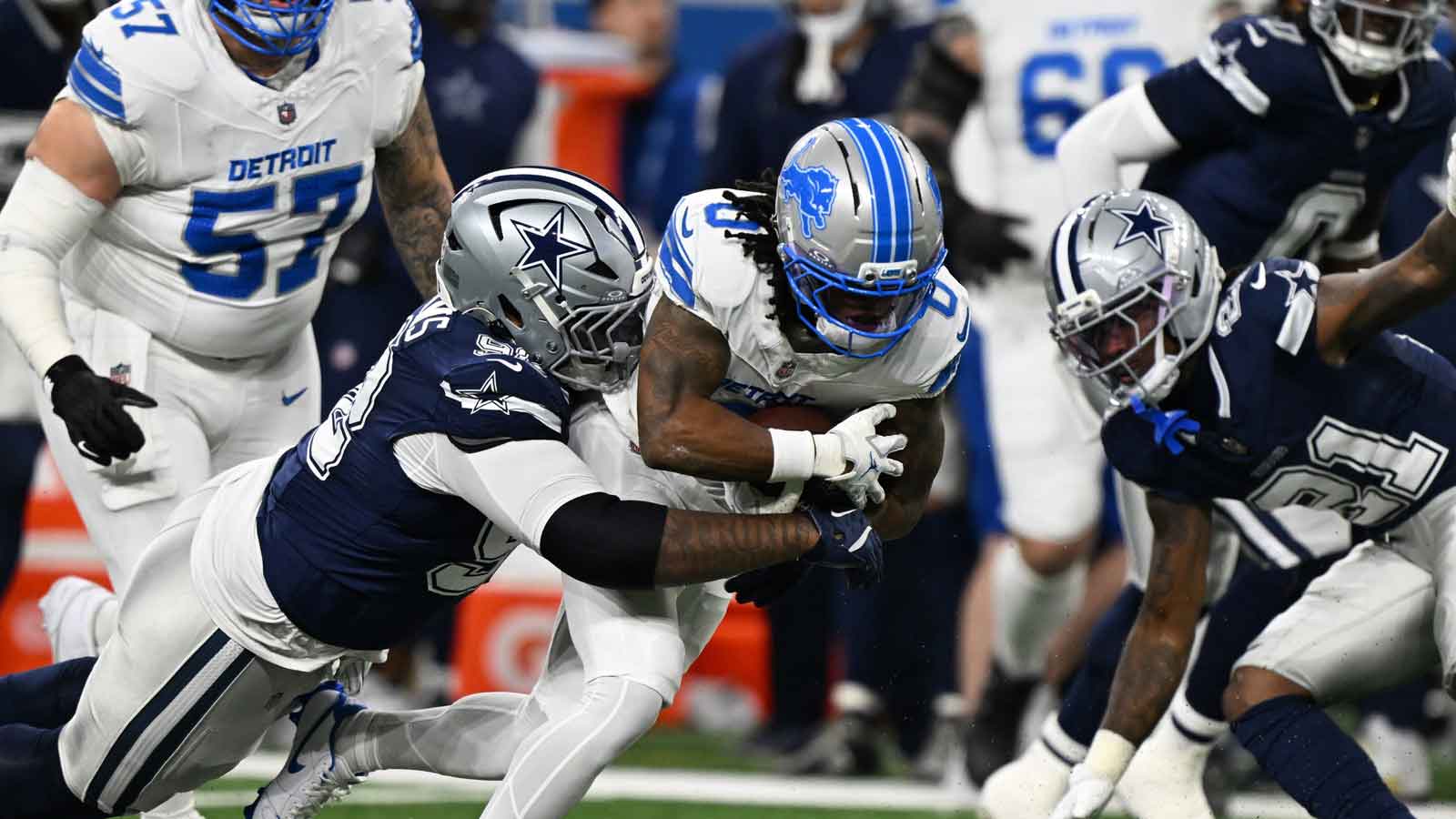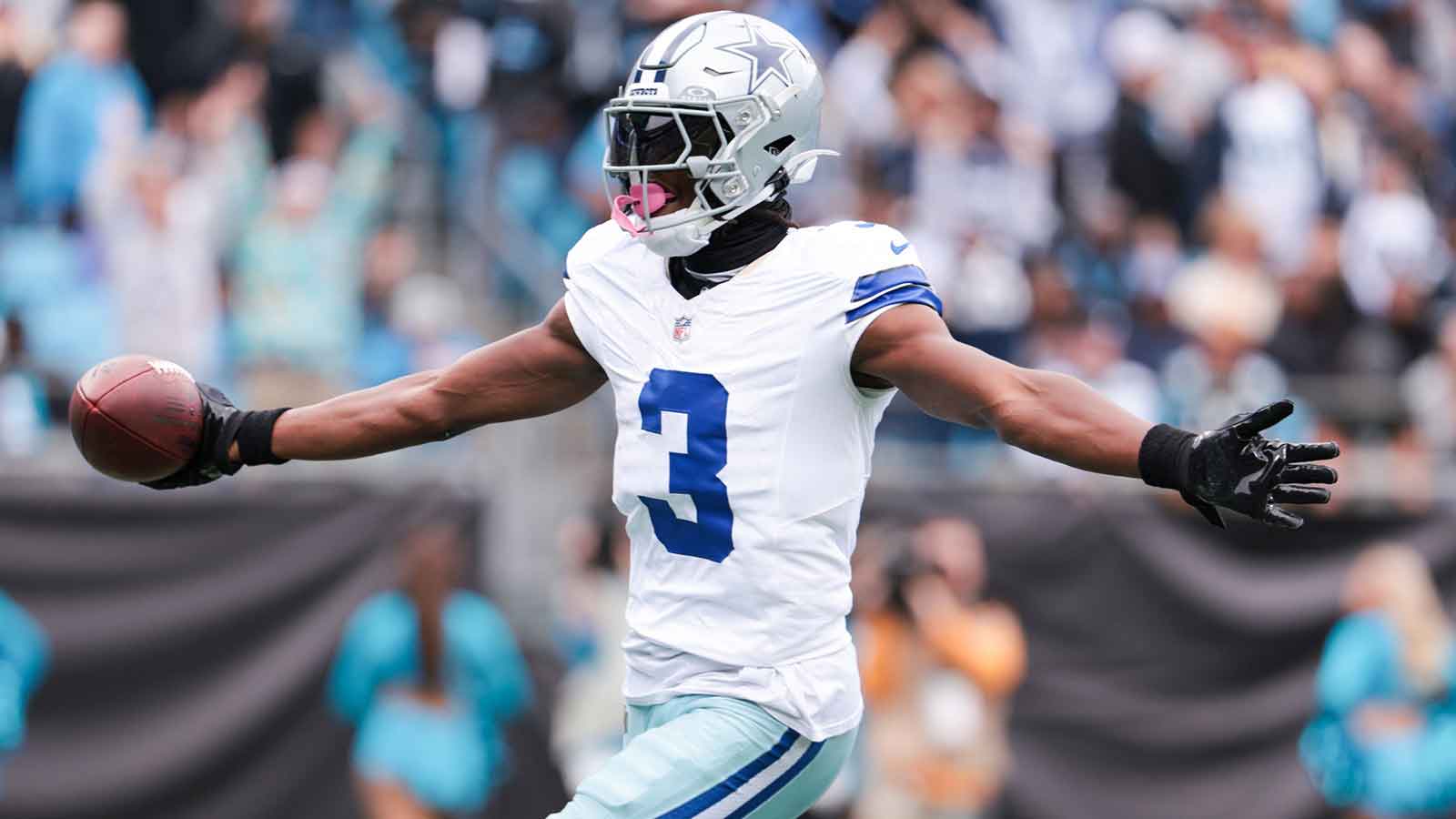The Dallas Cowboys flirted with disaster Sunday afternoon in a last-second victory over the hapless Houston Texans. There was a collective sigh of relief after Ezekiel Elliott barreled into the end zone to cap off the 18th game-winning drive of Dak Prescott's career, but the ugly win won't sit right with those that believe the Cowboys can be a serious contender for a Super Bowl. Even the best teams still have problems. Dallas' razor thin win over the worst team in football brought some of the Cowboys' problems to the forefront. Here are the biggest hurdles between Dallas and a sixth ring this season.
1. Dak Prescott is giving the ball away far too much
This is perhaps the biggest problem the Cowboys have as a team right now. If that seems elementary or obvious, that's because it is. Prescott's nine interceptions in eight starts so far this season is an unprecedented low point for his career in terms of ball security. His 3.6% interception rate is over double what it was at the end of last year. Those extra possessions allowed Indianapolis to hang around until the fourth quarter in Week 13, and they almost cost Dallas the game on Sunday afternoon.
The most telling thing about Prescott's interception problem at the moment is when they are occurring. In each of the last two weeks, Prescott has thrown a pick right before halftime as the Cowboys were trying to move quickly down the field to score before the break. Prescott's second interception of the Texans game came in a comparable spot with less than six minutes left from his own 3-yard line while the Cowboys needed a score.
Prescott is pressing in crunch time. That is a very bad space for a quarterback to be in. Of course, he pulled himself together on Sunday to orchestrate his first game-winning drive since Week 6 of last season, but the Cowboys are going to get beat sooner or later if Prescott keeps doling out interceptions at the rate he is now. The franchise passer for America's Team has a real turnover problem at the moment. Prescott needs to find a solution before it costs the team during a year that they could otherwise put together a serious playoff run.
2. The Cowboys are not deep enough at cornerback
The sight of Trevon Diggs trotting to the locker room with 5:28 left to go in the first half on Sunday was a startling one after Anthony Brown's season ended with an Achilles injury last week. Diggs eventually returned to the game after trainers worked on his left hand, but the Cowboys' list of available corners dwindled to Kelvin Joseph, Nahshon Wright, and undrafted rookie DaRon Bland.
The Cowboys found out just how much they would miss Diggs almost immediately after he left the field. Houston quarterback Jeff Driskel hit Amari Rodgers for a 28-yard touchdown pass. Safety Donovan Wilson was in coverage on that particular snap, but the big-play touchdown underscored how much Diggs does for the Cowboys' secondary in man-to-man coverage.
Kelvin Joseph is the only thing standing between the Cowboys and a completely unproven asset starting at cornerback for the remainder of this season. Joseph flashes the talent that prompted Dallas to draft him as high as they did at times. He also gets beat often enough and commits enough penalties to be a cause for concern moving forward. If Diggs misses any time at all this season, the Cowboys are going to have serious problems stopping the pass.
3. Kellen Moore keeps abandoning the game plan
After Dallas' first drive of the game on Sunday afternoon, it felt like Ezekiel Elliott and Tony Pollard were about to turn the game into a track meet. The Cowboys' dynamic rushing duo combined for 55 rushing yards, including an 11-yard score by Pollard to give the Cowboys a 7-0 lead. By the end of the first half, the Cowboys had accrued only 65 rushing yards and had thrown the ball twice as often as they ran it.
The Cowboys had to erase a deficit, but finishing the game with 39 passing attempts to 31 rushing attempts is not conducive to their success given what we know about their ability to run the ball. Add to that equation a prospective recession in pass protection after losing Terence Steele for the remainder of the season, and Dallas' need to run the ball early and often feels even more apparent.
It almost seems as though Moore is trying to give Prescott a chance to bail himself out from his recent mistakes. What the Cowboys need instead is to be very comfortable in their identity as a run-first team. The narratives about Prescott will fall where they may.



